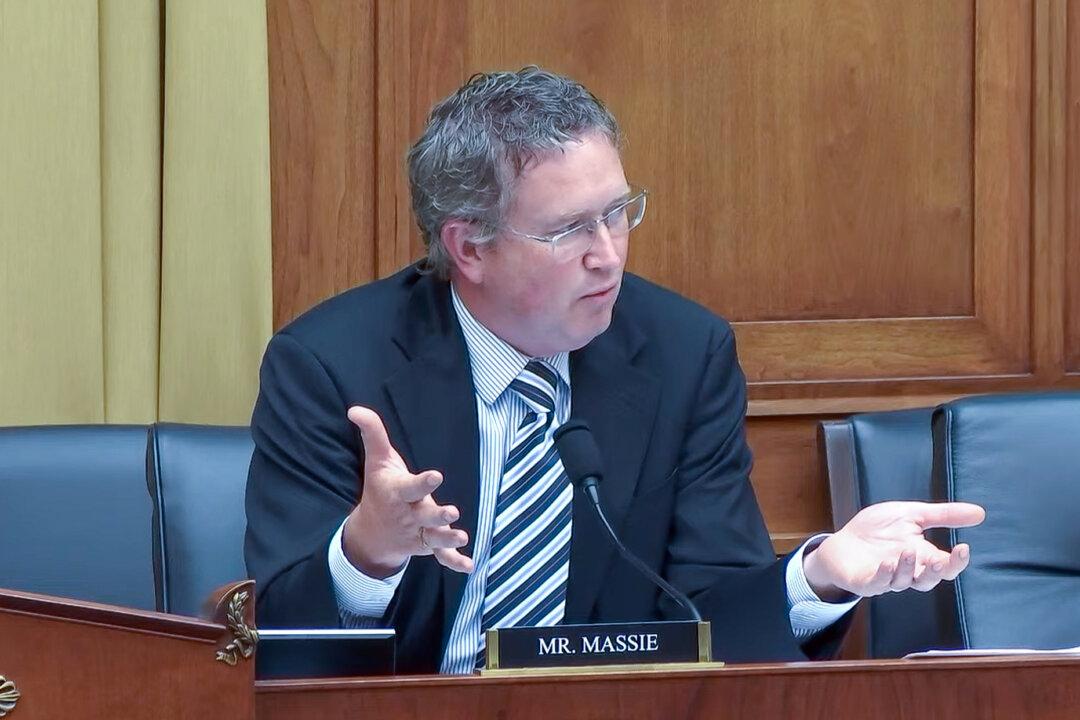Congress has voted against Rep. Thomas Massie’s (R-Ky.) amendment to defund a government-mandated kill switch in vehicles built after 2026.
Buried in a section of the Bipartisan Infrastructure Act is a provision to implement “advanced drunk and impaired driving prevention technology” that will shut down cars if sensors detect that the driver is in any way not in condition to drive.





